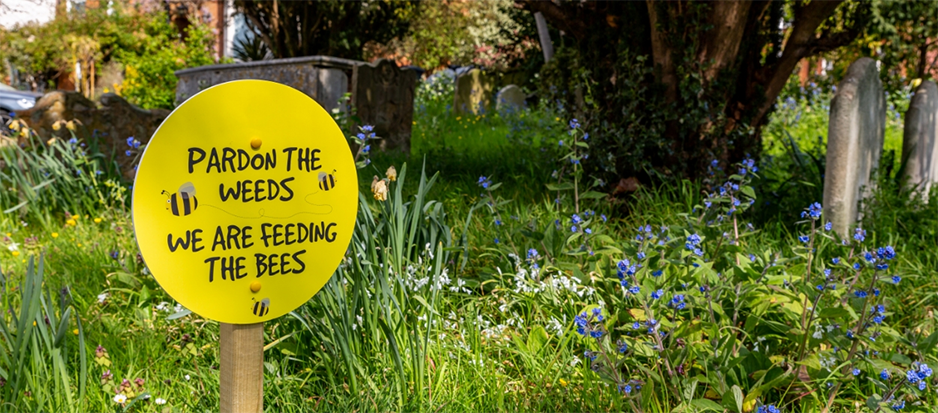Create a Stormwater-Friendly Yard
Published on March 12, 2025

Spring is the time when we’re all excited to get back into our yards and gardens. But have you ever considered how your yard impacts local water quality? A stormwater-friendly yard or “green yard” is designed to absorb rainwater, reduce runoff, and minimize pollution in nearby streams, rivers, and lakes. By making small changes to your landscaping and maintenance practices, you can help protect water resources and promote a healthier environment.
Why Does It Matter?
Your yard plays a bigger role in local water quality than you might think. When stormwater runs off traditional lawns, it can carry excess nutrients, pesticides and yard waste into storm drains, which continue untreated into local waterways.
Home gardens and yards can contribute a significant amount of pollution to our streams if not maintained responsibly. Studies have even shown that stormwater runoff from urban and suburban areas is one of the leading sources of surface water pollution! Taking a few simple steps can help improve water quality, protect aquatic life, and even prevent costly water treatment issues.
Test Your Soil to Determine Nutrient Needs
Testing your soil prevents over-application of fertilizers, which reduces the amount of excess nitrogen and phosphorus that can wash into waterways and cause harmful algal blooms. It also promotes healthier plant growth, improves soil stability, and reduces erosion. You can test your soil through local services or with home testing kits to determine the exact nutrients your yard needs—helping you avoid unnecessary chemical applications.
Use Less Fertilizer and Pesticides
Using fertilizers and pesticides increases the risk of chemicals leaching into groundwater or entering the stormwater system via runoff. These substances are harmful to aquatic life and degrade local water quality. Instead of routine applications, only use fertilizers when your soil test indicates a need. Consider organic or slow-release options and opt for natural pest control methods whenever possible.
Increase Natural Areas with Native Plants
Rather than maintaining mostly lawn and grass, consider incorporating more natural areas with native plants. Native plants have deep root systems that improve water infiltration, reduce runoff, and prevent erosion. They also require less irrigation and fewer chemical treatments, leading to cleaner stormwater. Even small changes—like adding a rain garden or replacing a section of lawn with native shrubs—can make an impact!
Compost Yard Waste or Schedule a Pickup
Properly managing yard waste keeps organic debris out of storm drains, preventing blockages and reducing nutrient pollution in waterways. Grass clippings, leaves, and trimmings from bushes and trees should be composted or collected for municipal pickup. Composting enriches soil naturally and reduces the need for synthetic fertilizers, further promoting a stormwater-friendly yard.
Get Involved!
Taking these steps not only benefits your yard but also helps protect the local streams, lakes and rivers we all love and rely on. At Charlotte-Mecklenburg Storm Water Services, we want to see what you’re doing to help! Tag us in photos of your stormwater-friendly yards or explore our website for more resources on how to improve local water quality.
For more information on soil testing, native plants, composting, and other ways to protect water quality, contact Charlotte-Mecklenburg Storm Water Services.